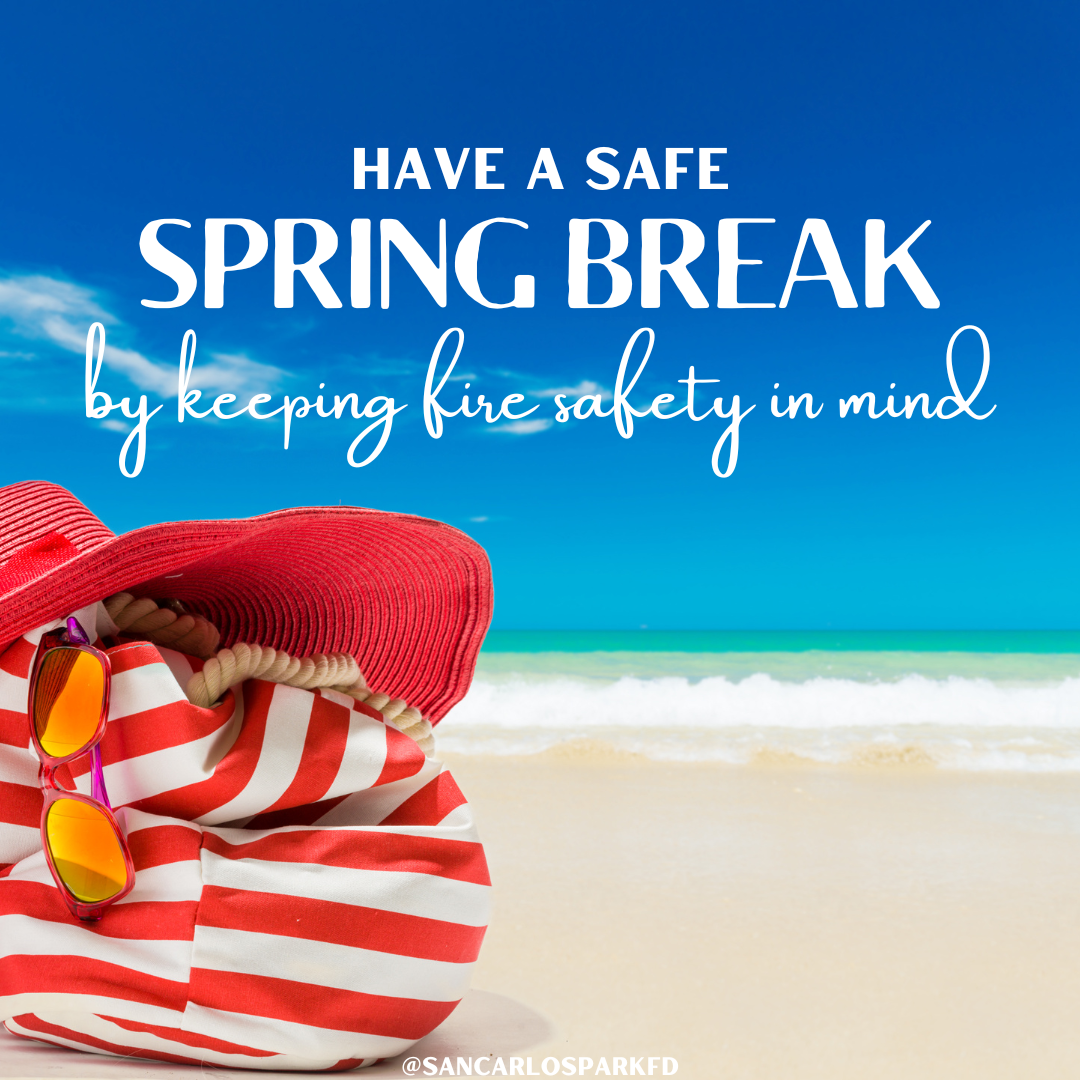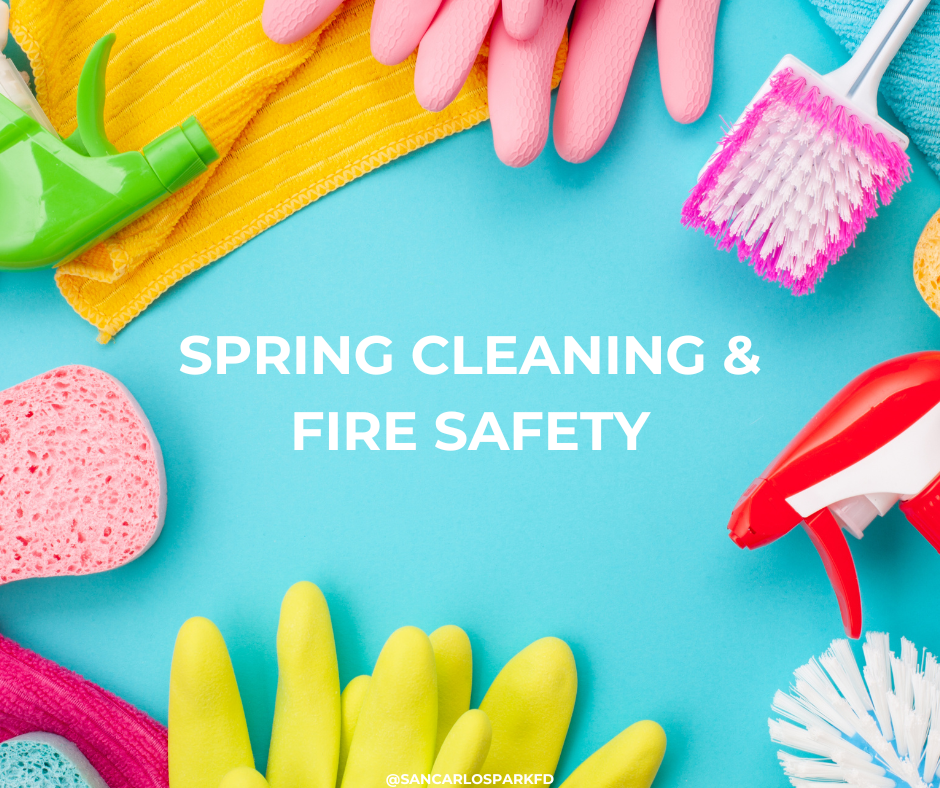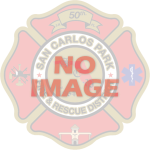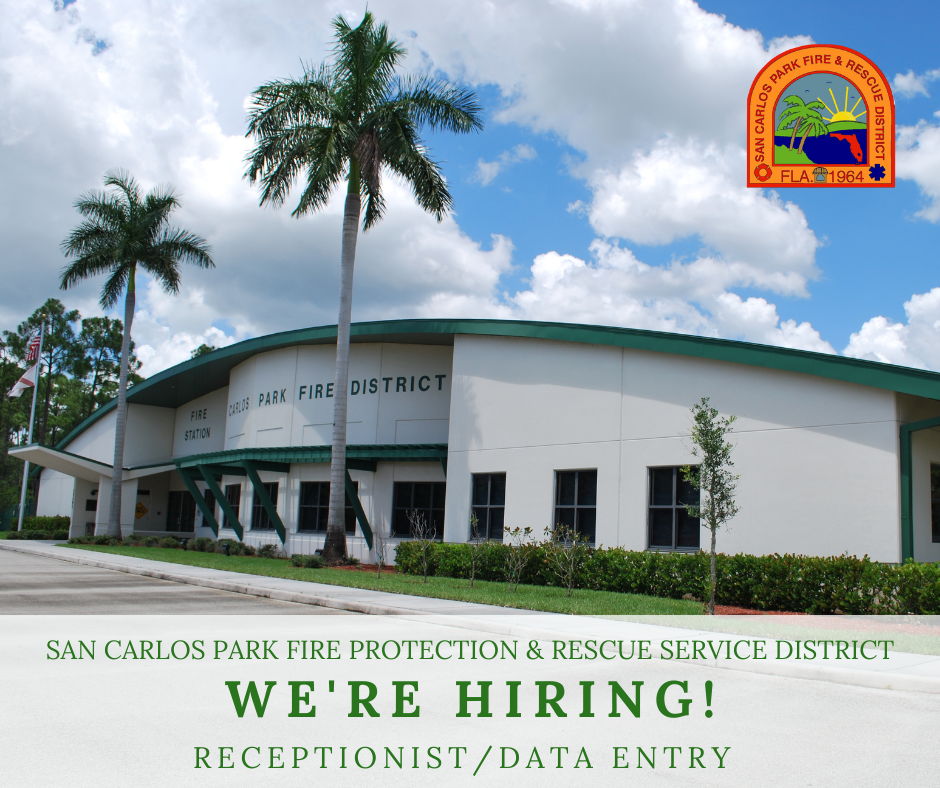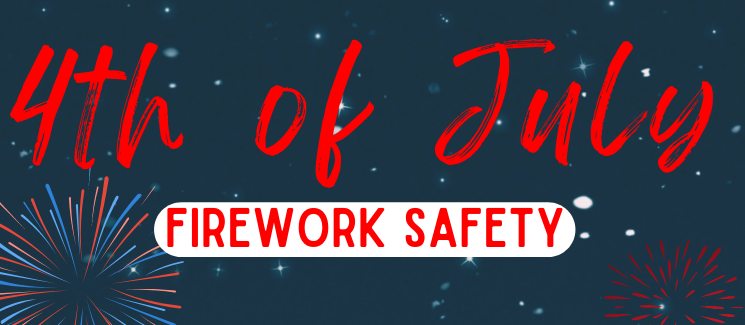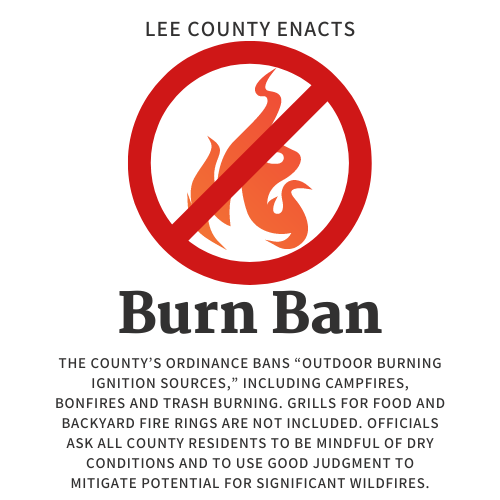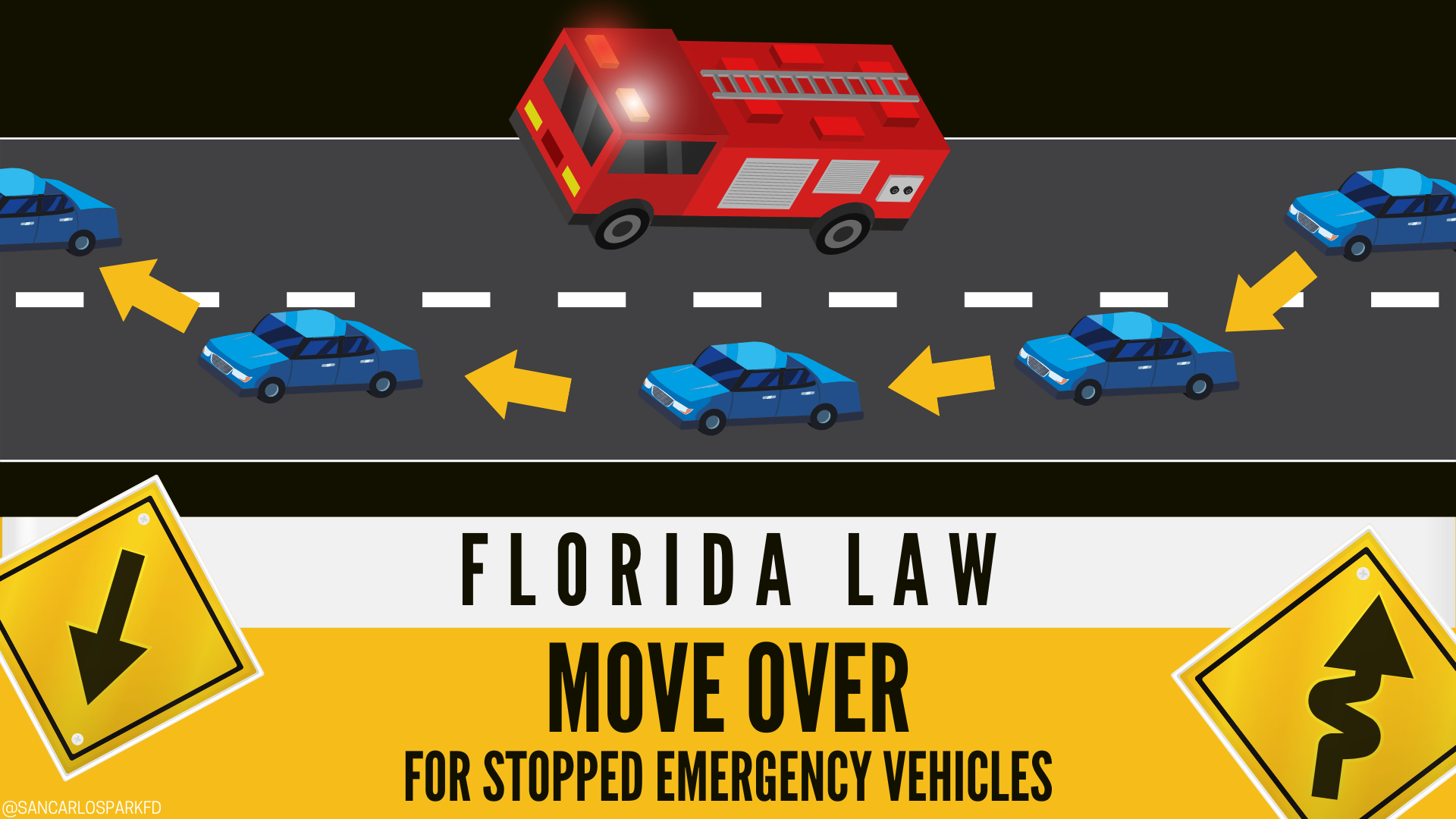Category Archives: Uncategorized
Traveling This Spring Break? Keep Fire Safety in Mind!
As you get ready for your spring break adventure, it’s important to think about staying safe, even when you’re away from home. Fire safety is super important no matter where you go. So, whether you’re hitting the road, taking a flight, or heading to a new destination, here are some easy tips to keep in mind:
1. Make Sure Where You Stay is Fire Safe: When you arrive at your hotel, Airbnb, or rental home, take a moment to familiarize yourself with the fire safety features. Locate emergency exits, the fire extinguishers, and smoke alarms. If you have any questions, don’t hesitate to ask the staff or property owner.
2. Know Your Escape Routes: Take a moment to identify emergency exits and escape routes where you are staying. Plan how you and your family would exit in case of a fire. Establish a meeting point outside where everyone can gather safely.
3. Pack a Mini Emergency Kit: It’s always a good idea to be prepared. Pack a small emergency kit with essentials like a flashlight, batteries, first-aid supplies, and a portable phone charger. You never know when you might need them, especially in an unfamiliar place.
4. Be Cautious with Cooking Appliances: If you’re staying somewhere with a kitchen, take care when using cooking appliances like stoves, ovens, and microwaves. Follow the instructions carefully, and never leave cooking unattended. Keep flammable items like dish towels and curtains away from heat sources.
5. Practice Electrical Safety: Before plugging in any devices or chargers, inspect the outlets and cords for any signs of damage. Avoid overloading electrical sockets, and never leave devices charging unattended, especially overnight.
6. Stay Informed About Fire Risks: If you’re traveling to a destination known for wildfires or other fire hazards, stay updated on local fire safety advisories and regulations. Be cautious when exploring natural areas and follow all guidelines to prevent accidental fires.
7. Keep Fire Extinguishers Accessible: Familiarize yourself with the location of fire extinguishers where you are staying. If you encounter a small fire that you can safely extinguish, use the appropriate fire extinguisher following the PASS technique: Pull the pin, Aim at the base of the fire, Squeeze the handle, and Sweep from side to side.
8. Report Safety Concerns Promptly: If you notice any fire hazards or safety concerns where you are staying, such as blocked exits or malfunctioning smoke alarms, report them to the property management immediately.
Remember, your safety is the top priority during your spring break adventures. By following these simple fire safety tips, you can enjoy a worry-free trip and make unforgettable memories. Have a fantastic and safe spring break!
Spring Cleaning and Fire Safety
As spring arrives, it’s time to tidy up your home and ensure it’s safe from fires. Here’s a simple guide to add fire safety into your spring cleaning routine. First off, make sure your smoke alarms are working. Test them to see if they beep loudly. If they don’t or it has been more than a year, change the batteries. Also, clean them to get rid of any dust or dirt. When you’re cleaning up, don’t forget to clear out any clutter. This includes getting rid of stuff you don’t need anymore, especially in places like the garage and attic. Keeping things neat and tidy makes it easier to get out if there’s a fire. Check your air conditioning and heating systems. Replace the filters so they work better and don’t collect dust, which could start a fire. Make sure nothing is blocking the vents, too. Clean your dryer vent regularly. Lint can build up there and catch fire easily. Take out the lint trap and clean it well. Use a brush or vacuum to clean the vent behind the dryer, too. Look at your electrical cords. If they’re damaged, replace them. Don’t plug too many things into one outlet, and use surge protectors to keep your devices safe from electrical problems. Keep chemicals like cleaners and paints in a safe place, away from heat and sunlight. Make sure the containers are sealed tightly so they don’t spill or catch fire accidentally. Plan how you and your family would escape if there’s a fire. Find two ways out of each room and pick a meeting spot outside. Practice your plan so everyone knows what to do. By following these simple steps, you can make your home safer while spring cleaning. Don’t forget to share these tips with your friends and family to keep everyone safe!
We’re Hiring- Receptionist/Data Entry
San Carlos Park Fire Protection & Rescue Service District EMPLOYMENT OPPORTUNITY
Repost July 6, 2023
Internal/External Posting
Receptionist/Data Entry: $30,370.00 starting salary. Position is 40 hours per week and works under the direction of the Fire Chief. He/she will do secretarial and clerical work involving delegated administrative duties from Supervisors. Duties may involve the use of independent judgment under general supervision, knowledge of Departmental procedures, regulations, and District policies. Accuracy and completeness of work is essential. Employees are frequently required to relieve other office staff of routine operational details by performing a variety of administrative tasks. The work requires exercising mature judgment and a basic knowledge of divisional relationships, programs, and goals. Additional responsibilities include coordination and resolution of a variety of assignments, effective communication with the public and all levels of District personnel to maintain effective and efficient operations. A written evaluation will be made based on work performance, attainment of Departmental objectives, observation of results, review of activities, review of written and reports and through periodic conferences with Supervisor. Graduation from an accredited High School or hold an acceptable equivalency diploma. Associate degree in related field preferred. Must have general Knowledge of information technology related systems to include but not limited to Microsoft Office (Word, Excel, SharePoint etc.) and other related platforms and programs. Basic experience in office machines. Minimum two (2) years secretarial/data entry training and/or experience. An equivalent combination of training and experience may be substituted for the above requirement. Please submit resumes to 19591 Ben Hill Griffin Parkway, Fort Myers, FL 33913. Submission of resume deadline is noon, Friday, July 28, 2023 EOE/DFW/Veteran’ Preference
San Carlos Park Fire Protection Receptionist Job Posting 2023
Fireworks and 4th of July Safety
Parades, barbeques, and a night sky lit up by the colorful glow of fireworks, are all part of celebrating our nation’s independence on the Fourth of July. Your family’s opportunity to “oooo” and “ahhh” at the magic that is a firework show are just around the corner. Many of us will go to a community event to watch and celebrate our freedom with fireworks displays while others will stay close to home celebrating in their own way. Either way you celebrate our nation’s independence have fun and enjoy, but always be safe and keep a close eye on your children. If a personal fireworks show is in your plans for the Fourth of July, please celebrate safely by practicing the “Three Be’s”.
Be Prepared
Before you light fireworks:
- Keep a bucket of water nearby to place all used fireworks.
- Have a water hose or fire extinguisher nearby to put out stray sparks.
- Clear a level area away from things that can burn.
- Be sure everyone knows how to call 911, your address/location, and basic first aid.
- Teach your children to stop, drop, cover their face, and roll if their clothes catch fire.
Be Safe
When lighting fireworks:
- Have a designated adult light all fireworks.
- Do not allow young children to light fireworks, only adults should light fireworks.
- Use eye protection, wear safety glasses or goggles.
- Light one at a time, move away quickly and keep a safe distance until the display has finished.
- Never use fireworks while impaired by drugs or alcohol.
- Use only outdoors, away from anything that can burn.
- To prevent injuries never point or throw fireworks at another person and never hold fireworks in your hand.
Be Responsible
After you finish:
- Dispose of fireworks properly by soaking them in water and then disposing of them in your trash.
- Duds can be dangerous; if a device does not light or fire, an adult should wait at least fifteen to twenty minutes, approach it carefully, and place it in a bucket of water.
Respect fireworks and sparklers as the great American tradition they are, but also respect the fact that they must be used with caution. Remember, a simple sparkler can reach 1,800° Fahrenheit, which is as hot as a blow torch! Please feel free to contact us if you have any questions at 239-267-7525 and most importantly, have a wonderful and safe Fourth of July.
Fourth of July Parade Update
You’re invited to the San Carlos Park 4th of July Parade! Make plans to attend and celebrate the 4th alongside your SCPFD Firefighters!
July 4th, 2023
8:30am
Those interested in participating can contact Lindsey Collins at 239-265-4412.
As always, the parade will follow the path outlined below. Please expect traffic delays in the area as a result.
Lee Commissioners enact burn ban for all of Lee County
Fort Myers, FL, March 9, 2022 – The Lee Board of County Commissioners enacted a burn ban for unincorporated Lee County and municipalities effective immediately due to increasingly dry conditions throughout Southwest Florida.
The county’s ordinance bans “outdoor burning ignition sources,” including campfires, bonfires and trash burning. Grills for food and backyard fire rings are not included. Officials ask all county residents to be mindful of dry conditions and to use good judgment to mitigate potential for significant wildfires.
Extended weather forecasts are for continuing dry conditions, and there is an elevated risk of wildfires from fallen trees in undeveloped lands due to Hurricane Ian.
The Florida Forest Service offers residents information and tips at:
- Be Wildfire Ready: www.fdacs.gov/Forest-Wildfire/Wildland-Fire/Fire-Prevention/Be-Wildfire-Ready
- Ready, Set, Go! Resources: www.fdacs.gov/Forest-Wildfire/Wildland-Fire/Fire-Safety/Ready-Set-Go!-Resources
For the county to enact a burn ban, certain conditions must be met, including a Keetch-Byram Drought Index (KBDI) that reached or exceeds a value of 600. Lee’s index value today is a mean average of 602 out of 800. The county also coordinates with the Lee County Fire Chiefs’ Association and the Florida Forest Service, both of which support the ban.
This ban does not apply to prescribed burns authorized by the Florida Forest Service, authorized public fireworks displays permitted by Lee County and other government agencies, and fireworks sales authorized by state laws.
The burn ban is accomplished by the Board adopting a State of Local Emergency. Commission Chairman Brian Hamman signed that State of Local Emergency and the burn ban after the Board of County Commissioners voted at its regularly scheduled March 7 meeting to authorize him to do so when conditions were met.
County officials will continue to monitor the drought conditions to determine how long the burn ban will be in place.
Move Over or Slow Down for Emergency Lights
January is Move Over Month! While majority of drivers understand to pull over for emergency vehicles approaching from behind, state law also requires vehicles to move over a lane for certain emergency and service vehicles stopped on the side of the road, or slow down if they cannot safely move over.
It’s easy to comply with Florida’s Move Over Law and to keep first responders safe:
Move Over
1. As soon as it is safe to do so, vacate the lane closest to the stationary emergency vehicle, sanitation vehicle, utility service vehicle, wrecker, or road and bridge maintenance or construction vehicle when driving on an interstate highway or other highway with two or more lanes.
2. Always signal your intention to change lanes.
3. Be prepared to allow those who are attempting to move over into the next lane.
Slow Down
1. If moving over cannot be safely accomplished, slow down to a speed that is 20 mph less than the posted speed limit when the posted speed limit is 25 mph or greater; or travel at 5 mph when the posted speed limit is 20 mph or less when driving on a two-lane road.
When you fail to Move Over, you put yourself and others at risk; you could crash into a vehicle or worker.

